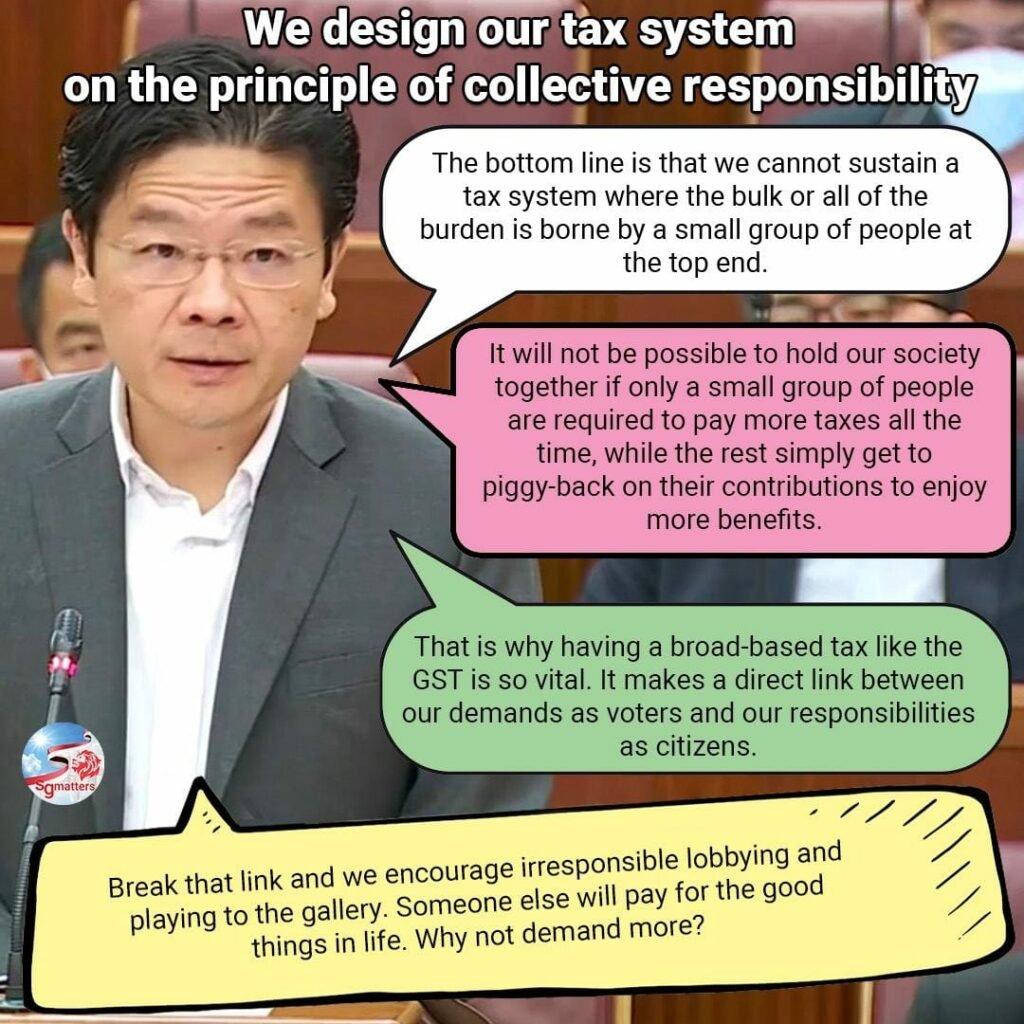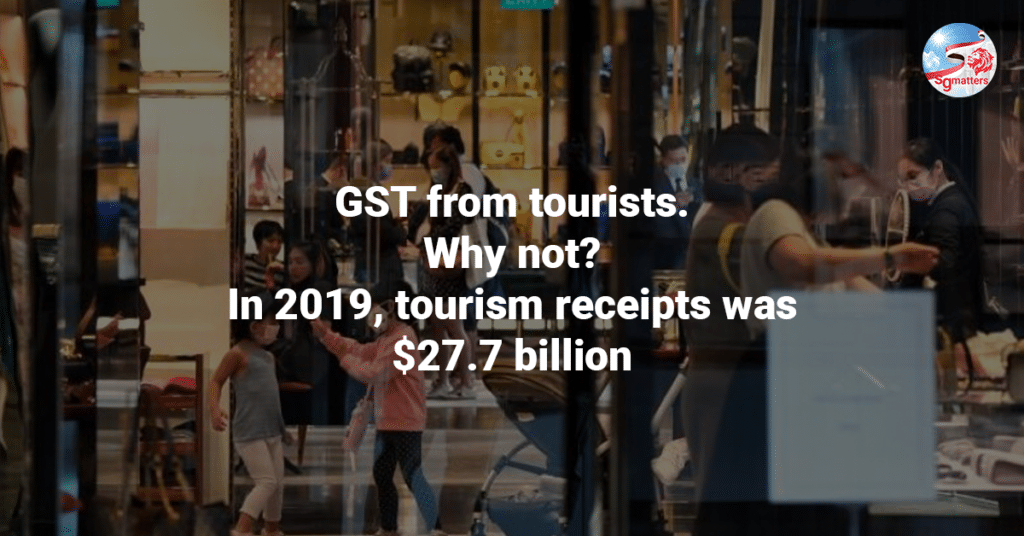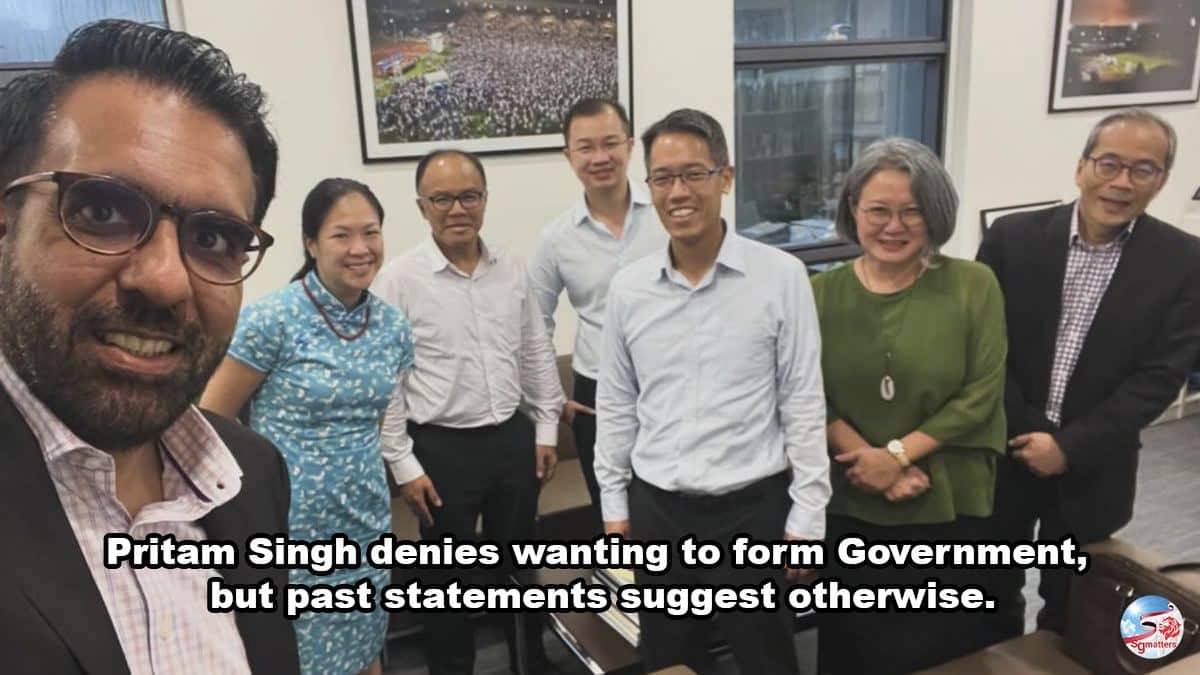Now that our borders are open, tourists will start to come back and we will be able to collect revenue from tourists’ spending through the GST.
In pre-COVID time, the bulk of net GST collected came from tourists and foreigners residing here, in addition to high income earners. At least 60% in fact.
19 million tourists visited Singapore in 2019 with a total tourism receipts of $S27.7 billion. Think of the net GST collected.
Why do the Opposition PSP and WP oppose the GST hike that will deny us of this avenue to collect additional revenue from a very wide group of people? Why do the PSP and WP want to confine revenue to income taxes and taking from future Singaporeans?
Can't run a country this way
“The bottom line is that we cannot sustain a tax system where the bulk or all of the burden is borne by a small group of people at the top end. It will not be possible to hold our society together if only a small group of people are required to pay more taxes all the time, while the rest simply get to piggy-back on their contributions to enjoy more benefits,” Finance Ministe Lawrence Wong said in his budget round-up speech this year.
As our economy matures and population ages, a bigger share of the population will become economically inactive. This will in turn shrink the tax base for income-based taxation. “So, we cannot rely only on income-based taxes alone, if we want to maintain a resilient and future-proof revenue base,” Mr Wong said.
Why GST is so vital
Having a broad-based tax like the GST is very vital because it makes a direct link between our demands as voters and our responsibilities as citizens, Mr Wong explained.
“Break that link and we encourage irresponsible lobbying and playing to the gallery. Someone else will pay for the good things in life. Why not demand more?”
Principle of collective responsibility
Our tax system is designed on the principle of collective responsibility.
“Everyone contributes towards the cost of delivering services, and everyone benefits from these services, but to different degrees.
“Those with greater means bear a higher burden. They draw less on Government support, but they still enjoy some benefits from the Government.
“Those with fewer means carry a lighter share, but they still contribute something, and in return they receive more benefits from the Government – more than they put in, and more than the better off.
“In this way we all do our part to help ourselves and one another, and we strengthen the trust that binds us together as a society. This is a fair and inclusive system,” said Mr Wong.
The well-to-do contribute in many other ways
The well-to-do contribute in many other ways, and not just through income or wealth taxes. For example, many have set up businesses in Singapore, creating good jobs for Singaporeans and helping to develop new capabilities in our economy. Some also set up philanthropic foundations, contributing to our charities and other worthy causes.

In conclusion
In concluding his speech, Mr Wong said:





